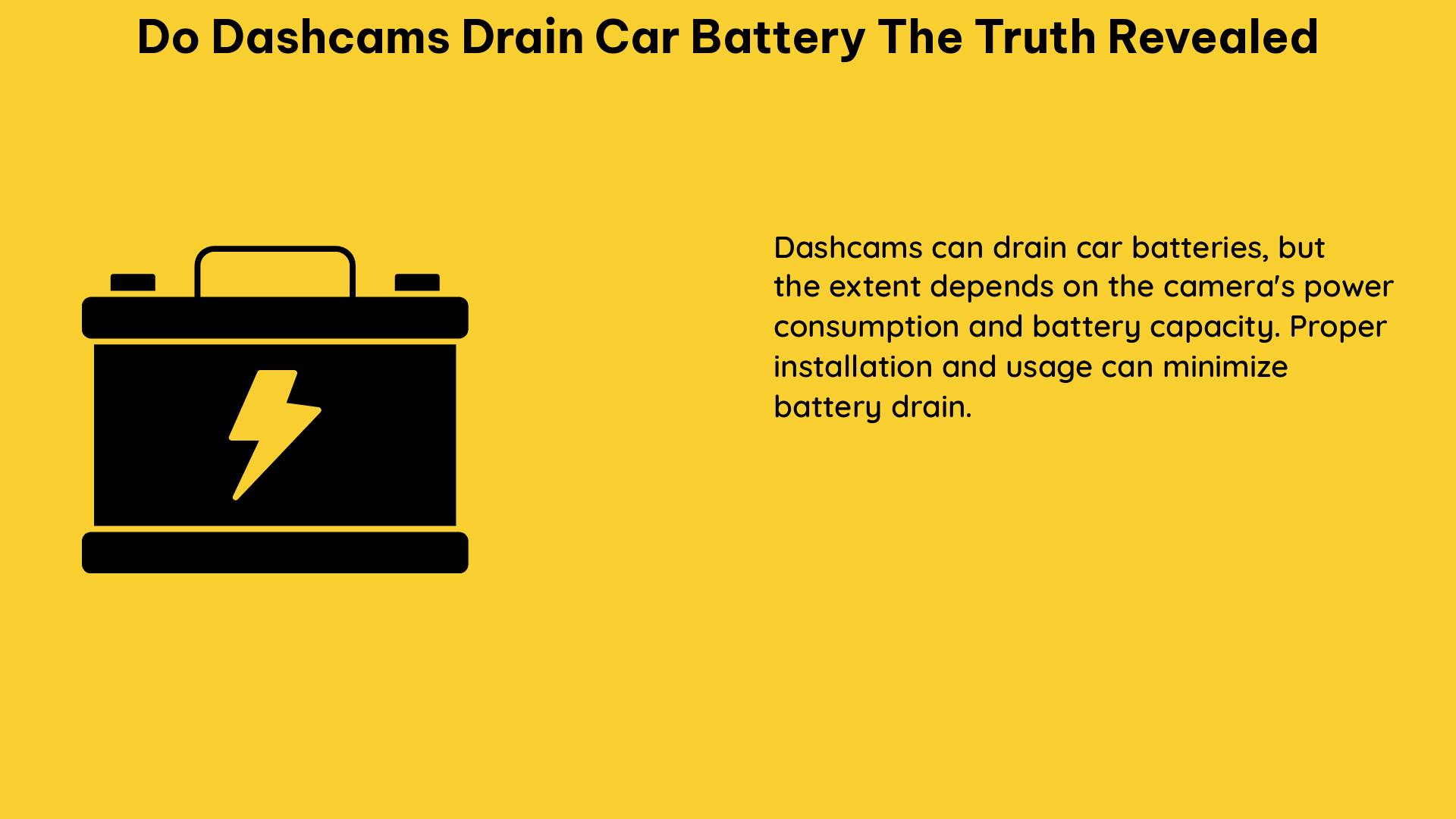Dashcams have become increasingly popular among drivers as they provide valuable evidence in the event of an accident or incident on the road. However, one common concern among users is whether these devices can drain the car’s battery, leading to potential inconvenience and even leaving you stranded. In this comprehensive guide, we’ll delve into the technical details and explore the truth about dashcams and their impact on your car’s battery.
Understanding Dashcam Power Consumption
Dashcams, like any other electrical device in your car, draw power from the vehicle’s battery. The amount of power consumed by a dashcam depends on several factors, including the camera’s features, resolution, and recording mode.
A typical dashcam with a dynamic range of features, such as high-definition video recording, motion detection, and parking mode, can consume between 0.25 to 0.45 amps of current. To put this into perspective, this power draw is about half of what a standard 100-watt light bulb would consume in your home.
Calculating the Impact on Car Battery

To understand the potential impact of a dashcam on your car’s battery, let’s consider a scenario with a 48Ah (Ampere-hour) battery. If your vehicle is drawing between 0.30 and 0.50Ah while the engine is off, the dashcam’s power consumption can account for a significant portion of this draw.
In this case, the dashcam could consume between 7.2Ah and 12Ah of energy per day (0.30Ah x 24 hours = 7.2Ah, 0.50Ah x 24 hours = 12Ah). This means that if you leave your vehicle parked at the airport with a fully-charged battery and the dashcam is still running, the battery could be completely drained within a week (48Ah / 7.2Ah per day) or as quickly as four days (48Ah / 12Ah per day).
Factors Affecting Dashcam Battery Drain
Several factors can influence the degree of battery drain caused by a dashcam:
-
Recording Mode: Dashcams with advanced features like high-resolution video, night vision, or continuous recording will consume more power than basic models with lower-resolution video and fewer features.
-
Parking Mode: Many dashcams have a parking mode that activates when the vehicle is turned off, allowing the camera to continue recording. This feature can significantly drain the battery if not properly managed.
-
Vehicle Usage: The frequency and duration of your vehicle’s use can also impact the dashcam’s battery drain. If you regularly take short trips or leave your car parked for extended periods, the dashcam’s power consumption will have a more noticeable effect on the battery.
-
Battery Condition: The age and condition of your car’s battery can also play a role in how quickly it is drained by a dashcam. Older or weaker batteries may be more susceptible to the additional power draw.
Preventing Dashcam Battery Drain
To mitigate the risk of your dashcam draining your car’s battery, consider the following solutions:
-
Dedicated External Battery: Investing in a dedicated external battery pack designed for dashcams can help alleviate the burden on your car’s battery. These external batteries can power the dashcam independently, ensuring your vehicle’s battery remains charged.
-
Hardwiring Kit: Installing a hardwiring kit allows you to connect the dashcam directly to your car’s battery, bypassing the need to rely on the accessory power socket (cigarette lighter). This setup ensures a constant power supply and prevents battery drain.
-
Parking Mode Settings: Adjust the sensitivity and duration of your dashcam’s parking mode to minimize power consumption when the vehicle is turned off. Some dashcams even offer the option to disable parking mode entirely when the car is not in use.
-
Disabling Unnecessary Features: Review your dashcam’s settings and disable any features that you don’t actively use, such as high-resolution video recording or advanced motion detection, to reduce the overall power draw.
-
Battery Maintenance: Regularly check the condition of your car’s battery and consider replacing it if it’s old or showing signs of wear. A healthy battery will be better equipped to handle the additional load from a dashcam.
Conclusion
In conclusion, the truth is that dashcams can indeed drain your car’s battery if not properly managed. However, with a good understanding of the technical details and the implementation of preventative measures, you can enjoy the benefits of a dashcam without the worry of unexpected power loss. By following the strategies outlined in this guide, you can ensure your dashcam enhances your driving experience without compromising the reliability of your vehicle’s electrical system.
References:
– Dash Cam Car Battery Drain: What You Need to Know
– Does a Dash Cam Drain a Battery?
– Will a Dashcam Kill My Car Battery?

The lambdageeks.com Core SME Team is a group of experienced subject matter experts from diverse scientific and technical fields including Physics, Chemistry, Technology,Electronics & Electrical Engineering, Automotive, Mechanical Engineering. Our team collaborates to create high-quality, well-researched articles on a wide range of science and technology topics for the lambdageeks.com website.
All Our Senior SME are having more than 7 Years of experience in the respective fields . They are either Working Industry Professionals or assocaited With different Universities. Refer Our Authors Page to get to know About our Core SMEs.